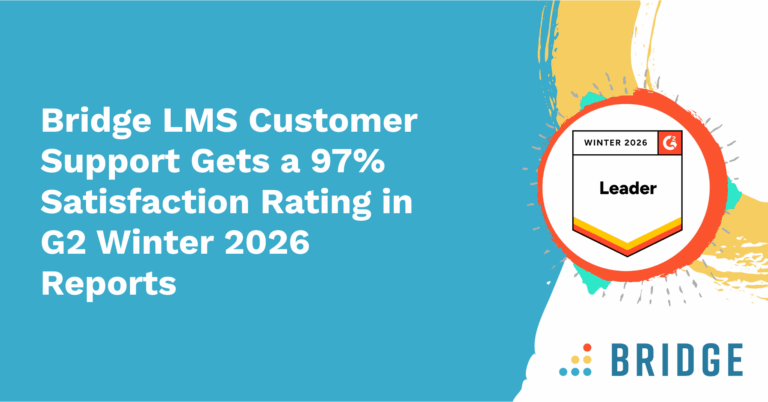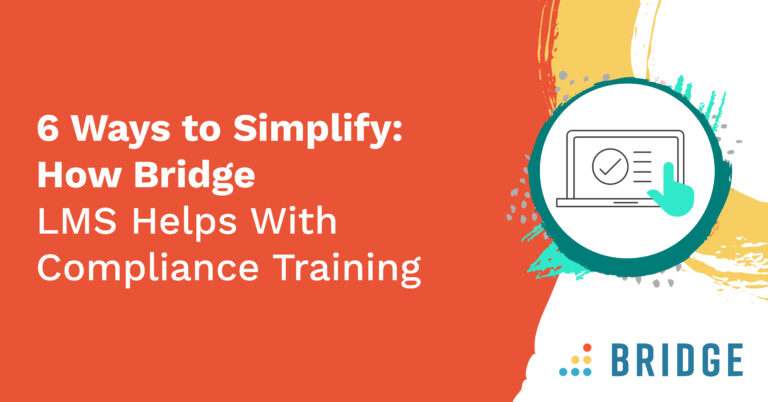It’s no secret that business performance is directly connected to employee engagement. As engagement levels across the US continue to wax and wane throughout periods of extended remote work, companies that don’t keep pace may be facing a tidal wave of low productivity and retention levels. To successfully navigate a post-COVID market, HR leaders must reimagine their talent management models and establish a clear path for top talent to succeed.
Based on research from Gallup, American companies have watched employee engagement levels cycling between historic highs and record lows since April of this year. Interestingly, engagement levels in July 2020—three months after companies worldwide began converting to fully-remote work—were the lowest the US workforce has faced in 20 years.
While the link between employee engagement and business performance was established decades ago, reinforcing the connection is even more critical in current times. This challenge presents an opportunity for HR leaders and talent managers to take a deep dive into their processes. Employers must be prepared to adapt to this shift by leveraging technology that will uniquely position them to support a modern talent journey.
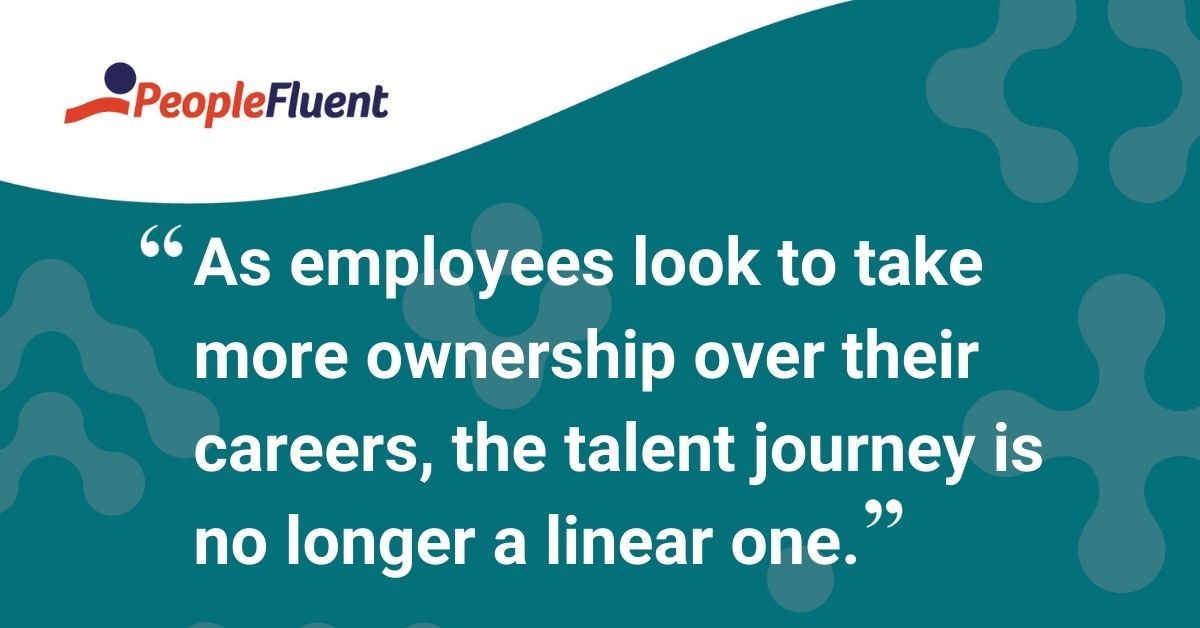
More from the blog: ‘How to Leverage Technology to Drive a Productive and Engaged Workforce’
These Forces Are Shaping the Modern Talent Journey
As employees look to take more ownership of their careers, the talent journey is no longer a linear one. The era of “hire to retire” with the same company is fading, especially with the US Bureau of Labor reporting that the average worker holds 12 jobs throughout his or her lifetime.
In recent years, the gig economy has grown as workers have decided to take more control over their work and home lives. Although employee retention levels have and always will be a concern for HR leaders, there’s a growing need among leaders to take a holistic approach to retaining top talent.
With 87% of companies experiencing skills gaps, or expecting to in the next few years, reskilling should be at the forefront of every CHRO’s to-do list. And, as remote work continues across the US and EMEA, engagement levels are being closely watched by executives, with 74% reporting to be anxious about lower-than-desired employee engagement.
These converging forces are causing savvy leaders to rethink how they approach their workforces and how they can realign talent strategies to the shifting talent journey.
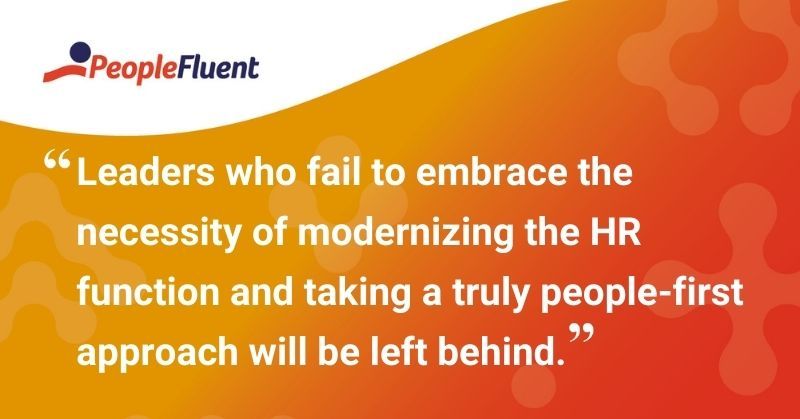
Related content: ‘How CHROs Can Maintain a Productive Workforce During Remote Work’
How To Adapt To the Evolving Talent Journey
The modern talent journey encompasses an employee’s path over the course of their time with an organization. This includes everything from hiring and onboarding to continuous learning and development, as well as career progression and/or departure. From an employer perspective, the talent journey also includes compensation and organizational planning decisions.
Some goods news is that companies are investing more into their internal mobility process, up from 39% in 2016 to 47% in 2020. Unfortunately, leaders who fail to embrace the necessity of modernizing the HR function and taking a truly people-first approach will be left behind.
With four or five generations currently coexisting in the workplace, talent managers must account for the varying levels of change management required to navigate the expectations these cohorts bring to the desk. The talent journey will continue to shift in the coming months or years and leaders can stay in step with the use of modern technology to help streamline the process.
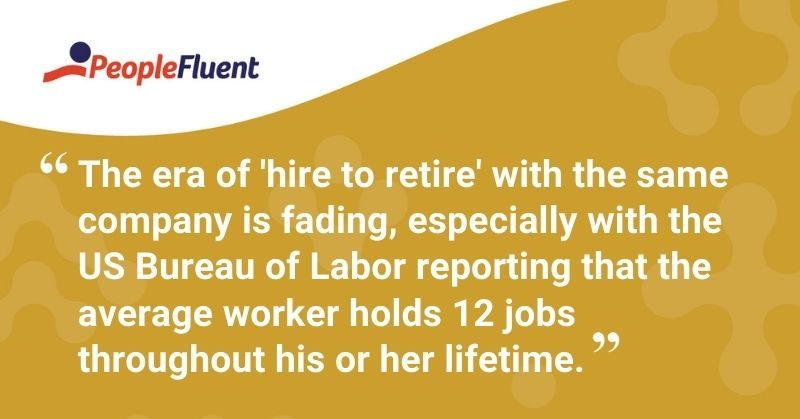
Keep reading: ‘The Three Cs: Talent Management Strategies to Engage Your Multi-Generational Workforce’
How to Align Talent Strategies to the Modern Talent Journey
As companies move from a traditional approach to skill-based workforce planning, the power of talent journeys can help HR practitioners build a modern roadmap to their talent strategies and processes. L&D professionals must provide flexible, personalized learning opportunities for workers to reskill or upskill themselves in the flow of work. This approach to continuous learning can be integrated with the proper learning technologies. But leaders should also be prepared to overcome process issues.
Employee well-being can be tied to productivity, giving employers more reason to be focused on increasing engagement through empathy, constant communication, and an abundance of feedback. Pre-COVID, taking a people-centric approach was in the periphery of HR leaders’ minds—yet, this year’s events have accelerated that need. Companies that invest in improving the employee experience will be better equipped to win the competition for talent.
To ensure a holistic strategy, HR leaders and talent managers should collaborate to develop a continuous plan with the help of multiple stakeholders. This includes gathering feedback from workers, executives, line managers, and L&D professionals to discuss what’s working. And what isn’t. The ultimate goal should be providing an individual, personalized path for development, growth, and advancement that takes its lead from an organization’s talent.
You might also like: ‘Drive Your Talent Strategy, Not Your System’
Editor’s note: A version of this article was previously published on the PeopleFluent

